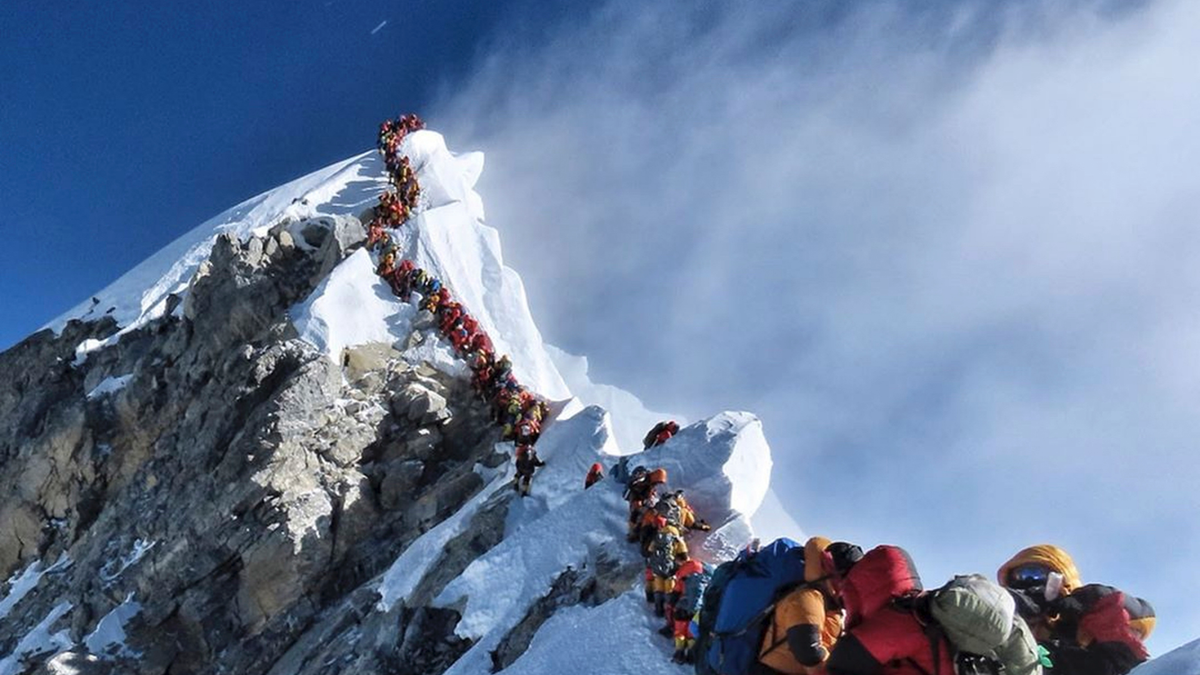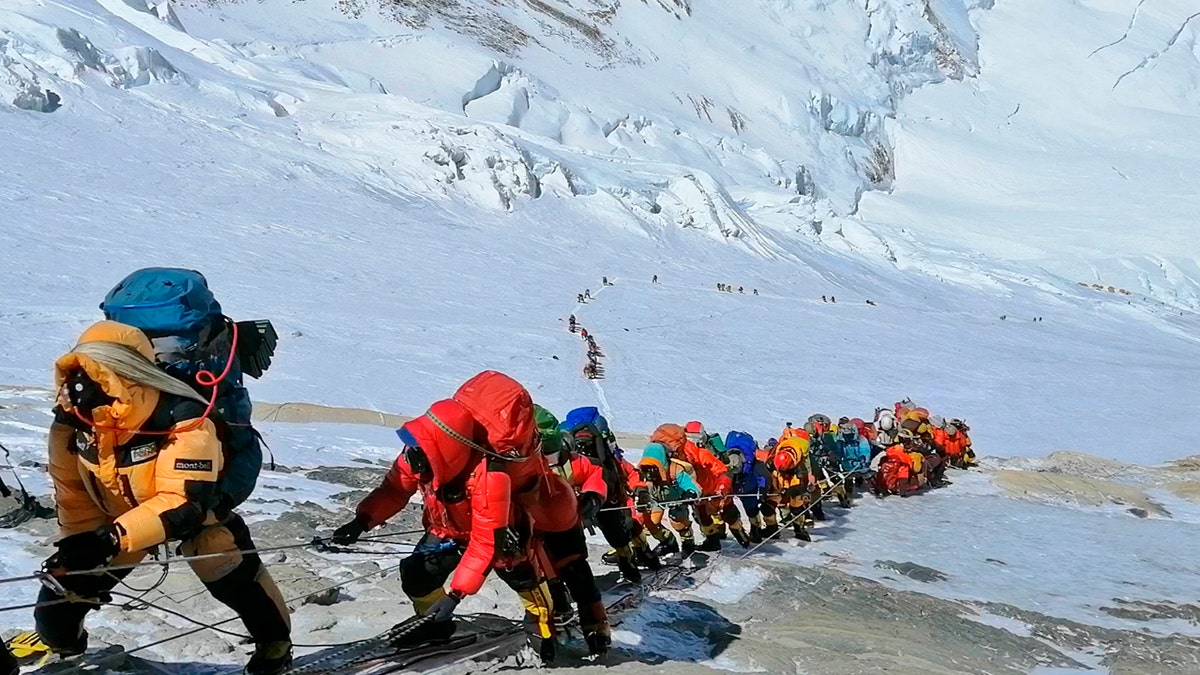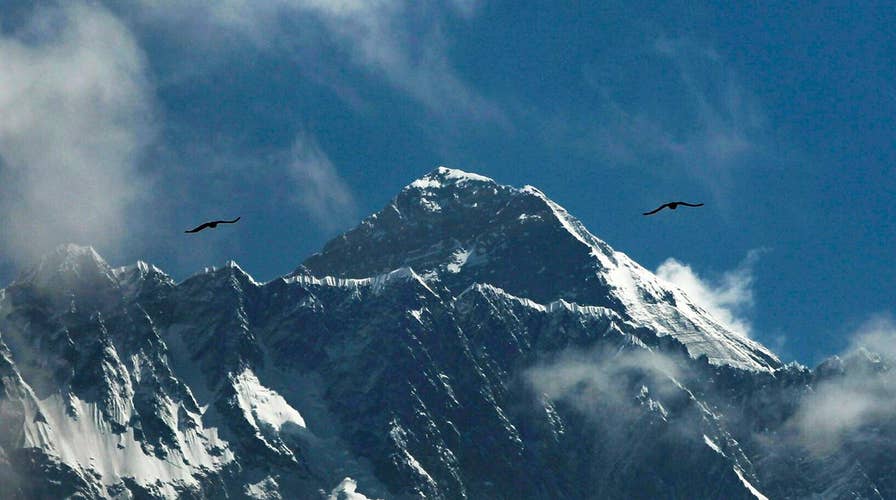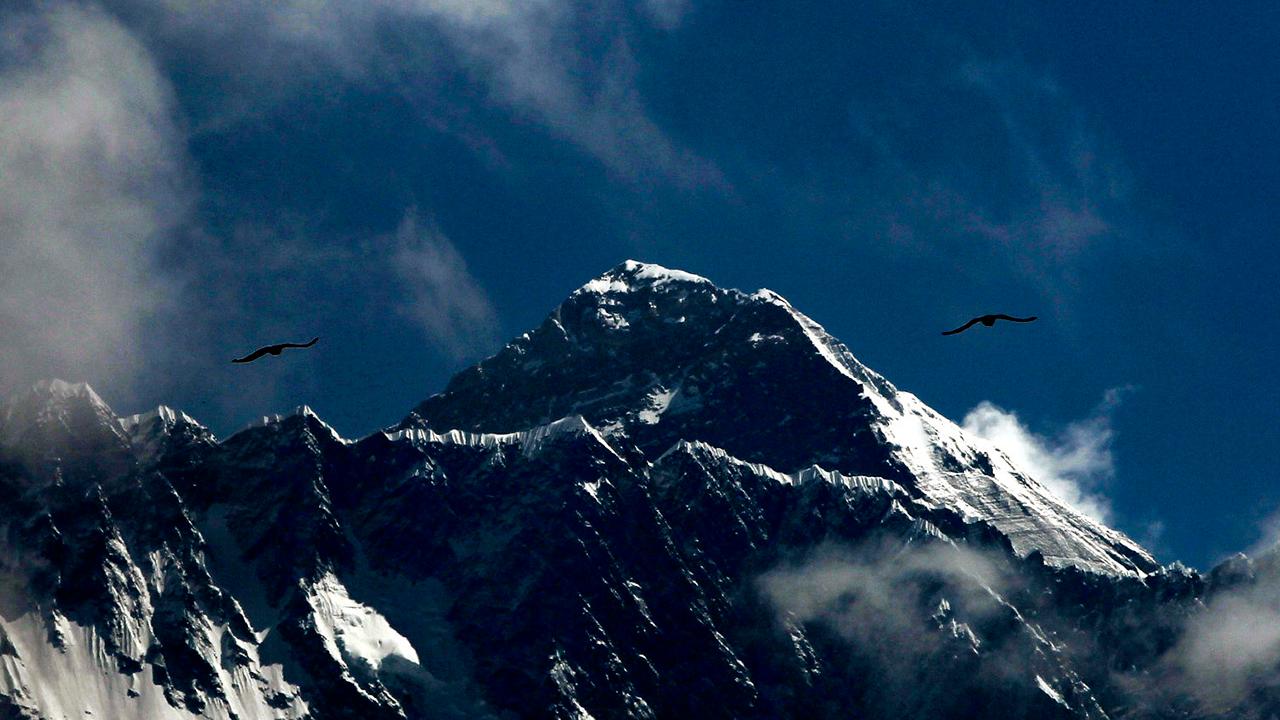Growing concerns over overcrowding at Mt. Everest summit after 11th climber dies
11 people, including two Americans, have died climbing Mt. Everest in 2019, prompting concerns about traffic jams trapping tired climbers at the summit; Greg Palkot reports.
A crush of climbers waiting to ascend the world's tallest summit can be seen in a new video amid the ongoing debate whether Nepal should limit permits to prevent dangerous overcrowding on the world's highest peak.
Eleven people have died so far this year on Mount Everest -- including nine in Nepal -- likely due to altitude sickness, which is caused by low amounts of oxygen at high elevation and can lead to headaches, vomiting, shortness of breath and mental confusion.
Nepal has issued permits to 381 people to climb Everest, which the government says is the greatest number ever.
MOUNT EVEREST DEATH SPIKE PROMPTING REVIEW OF 'ALL THE OLD LAWS,' NEPAL OFFICIAL SAYS
Video filed by Rohtash Khileri and posted to Instagram shows dozens of climbers as they wait in line before making their way towards the 29,035-foot peak.
"Waiting for climbing up," he wrote on the video that's attracted over 19,000 views.
Another video shows the jam of climbers further up as they await the turn to get to the summit.
"Every climber trying to climb up. Due to bad weather and more climbers is a jam," he wrote. "Waiting their turn to reach the summit, mountaineers."
Because of the altitude, climbers have just hours to reach the top before they are at risk of pulmonary edema, when the lungs fill with liquid causing respiratory failure. Mountaineers have described traffic jams caused by exhausted rookies in the "death zone," the final phase of the ascent from Camp Four at 26,240 feet to the 29,035-foot peak.

About half a dozen climbers died on Everest last week most while descending from the congested summit during only a few windows of good weather each May. (Nimsdai Project Possible via AP)
Renowned mountaineer Um Hong-gil of South Korea, who was honored by the Nepal government Wednesday at an event commemorating the 66th anniversary of the first ascent of Everest, said the number of climbers should be scaled back and only those with proper training and experience should be allowed.
"There should definitely be less permits issued and more experienced climbers on Everest," Um said.
EXPERT CLIMBER SAYS OVERCROWDING, INEXPERIENCE CAUSED INCREASE IN MOUNT EVEREST DEATHS
Expert mountaineer and speaker Alan Arnette, who has climbed Everest four times told "FOX & friends" on Wednesday that 2019 has been "a little bit of an anomaly but it wasn't unheard of" as a now-viral photo of hikers lining up to reach the iconic summit has highlighted the problem.
"The key factor this year was a limited number of days where the wind was low enough to be able to summit that contributed to the crowds," Arnette said. "That meant there were close to 800 people trying to go up in what last year was 11 straight days of suitable weather, and this year was only three."
Nepal's Mountaineering Association, an umbrella body of expedition operators, has said it would push the government to enact policies to "control the inexperienced climbers from attempting to scale Everest."
The association's president, Santa Bir Lama, told the Associated Press that government permits, which are often issued to climbers just days before their expeditions, should be issued months in advance to give climbers time to fully prepare.

In this May 22, 2019 photo, a long queue of mountain climbers line a path on Mount Everest just below camp four, in Nepal. (AP Photo/Rizza Alee)
While government officials have said there were no plans to cap permits, another official had a different response to the New York Times on Wednesday.
CLICK HERE FOR THE FOX NEWS APP
“Certainly there will be some change in the expedition sector,” Mira Acharya, a senior official with Nepal’s tourism department, told the newspaper. “We are discussing reforming some issues, including setting criteria for every Everest hopeful."
Fox News' Anna Hopkins and The Associated Press contributed to this report.










































